Little did I know that I would finish reading Dinesh D’Souza’s book, The Big Lie, in a Starbucks in Seville, Spain. It speaks to the power of the author’s spell to keep me reading instead of exploring the wonders of the Andalusian jewel city. But we are not dealing here with any book. This is D’Souza’s valiant attempt to remind us that we are dangerously misled by our political discourse and cultural assumptions and that if we don’t do anything to defend classical American values we may lose the country to a movement whose goal is to implement nothing less than a fascist agenda. Yes, you heard that right. Fascism. That movement is not the Tea Party or the alt-right; it is the Left, which is closely associated with the Democratic Party.
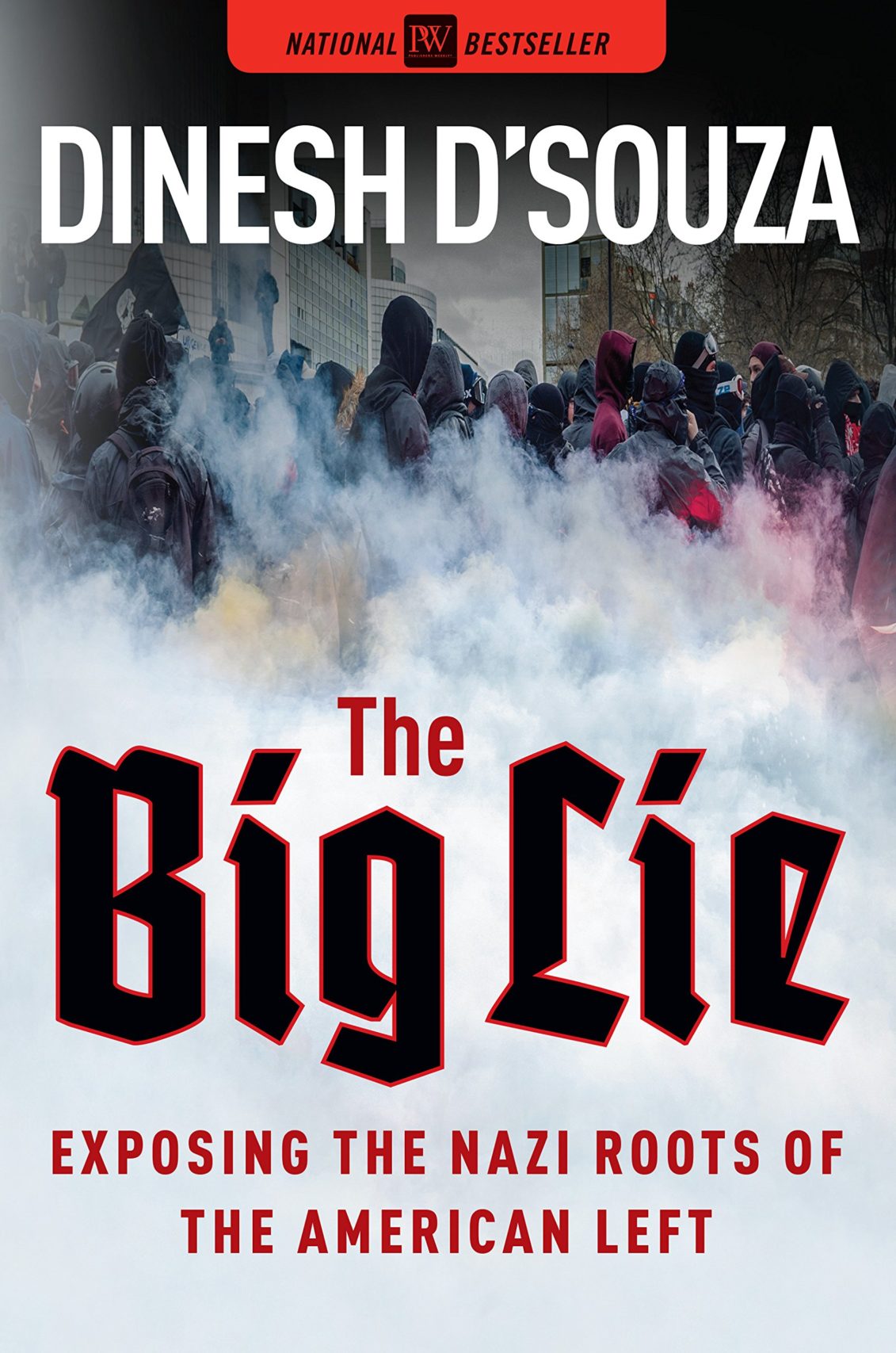
To accuse the Left and Democrats of fascism will strike many as silly, but D’Souza, a Reaganite Republican, provides a compelling case, one that needs to be addressed with informed discussion, not emotional outcries. The author reminds us that it was the Democrats who championed slavery, removed Indians from their lands, established slave camps, created the Klu Klux Klan and introduced laws for marriage and immigration restrictions. It’s hard to believe it now, but icons of the political Left, such as Franklin D. Roosevelt and John F. Kennedy, admired fascists and Nazis, while writers like Gertrude Stein could in all seriousness state that Hitler deserved a Nobel Peace Prize. The outbreak of World War II and the horrors of the Nazi regime may have driven this history underground and out of public consciousness, but fascist ideas reentered the country in the form of philosophical ruminations by refugees from Nazi Germany. Theodor Adorno and Herbert Marcuse established a base in the United States not to defend American values but to condemn them as reactionary and stifling to true freedom. They abhorred American-style capitalism and mainstream family values and, in the case of Marcuse, promoted “polymorphous sexuality” to liberate the libido.
In a strange case of transference, the radical movement of the 1960s, influenced by such thinkers, blamed the victim and set out to question and dismantle their traditions and champion a progressive agenda that includes state intervention in all facets of social and economic life. Forgetting that categories like “Left” and “Right” are French imports without much resonance in American history or culture, they labeled conservatives (Americans who want to uphold the principles of the American Revolution) as members of the Right, and, therefore, fascistic. They had—and still have—no idea that fascism was first and foremost a movement of socialists and avant-gardists who wanted to establish the state above citizens and solve all problems that way. Hitler couldn’t be clearer in 1927 when he said “We are socialists. We are the enemies of today’s capitalist system of exploitation.” Even his anti-Semitism stems from the Marxist association of Judaism with capitalism.
If today’s emancipated progressives believe that their white, church-going, Republican grandfathers are fascists or Nazis for upholding traditional values, they should think again. The fascists of Italy and Nazis of Germany couldn’t have been more different or progressive. Mussolini and Hitler loved art and music and both were atheists. Hitler despised Christianity and lived with a mistress. Himmler and Goebbels were also atheists; the former, who lived with a mistress, had a passion for organic farming, while the latter was interested in romanticism and aspired to be a writer and artist. So many Nazis extolled the value of natural living that one historian found in Nazism “the first major expressions of modern environmentalism.”
Fascists and Nazis, in other words, fit the bill for our concept of progressives. This explains why Mussolini and Hitler found in FDR a kindred spirit. When the latter introduced the National Recovery Act as part of the New Deal, Mussolini exclaimed, “Ecco un dictatore!” (Behold a dictator!). Lest we forget, FDR, who ruled for 13 years, was the president who interned 120,000 Japanese-Americans in “concentration camps” and implemented other discriminatory policies. Today, Leftists and Liberals (I use an uppercase for Liberals to differentiate them from classical liberals who advocated nationalism and other ideas that have become unpopular) think that they have the monopoly on the definition of freedom, and they use academia, the media, Hollywood, and even comedy shows (clowns) to spread their false consciousness and brainwash public opinion. Sponsored by George Soros, a man who once had visions of himself as godlike, many organizations are dedicated to the cause of toppling Conservatives and their causes.
There is no doubt in my mind that anyone who wants to get a sense of how a Conservative or Republican sees his or her country, this is the book to read. At least, I am hoping that D’Souza articulates what many Conservatives and Republicans are struggling but failing to express. One could disagree with everything D’Souza says, but that doesn’t make his book or ideas unworthy of reflection and discussion. I have no idea how to respond or react to his political polemics since I don’t feel that strongly about Democrats or Republicans. D’Souza despises Bill Clinton and Barack Obama, but I think they are some of the smartest presidents the United States has ever had. They didn’t have the charisma of Ronald Reagan (the author’s hero), but they understood the world they lived in and tried to steer their policies in that direction. In a way, the problem for me in this book is D’Souza’s political partisanship. This is, in some sorts, a manifesto, not a neutral reflection on what’s afflicting America.
Yet, I am very proud of D’Souza. Here is a naturalized citizen (like myself) who has understood America and what it stands for better than natural-born Americans (to avoid saying natives). I think the American Revolution is the landmark event of modern times, and so does he. Many immigrants have dedicated their energies and passions to making money and being successful, but D’Souza has made the defense of the United States his main commitment. Which Conservative or Republican is doing this as articulately as he does? It takes someone who was born in India to come to the rescue of true American values. Natural-born Americans are, presumably, oblivious to their own heritage, since so many of them are impressed by politically correct ideologies, whose provenance they have no clue about. How could they know that the Nazis tried to make every German fit into the Gleichschaltung (having every citizen buy into Nazi ideology) when they have no knowledge of history? Gleichschaltung is, in fact, our notion of “political correctness.” Express your true opinions at your own peril!
If only for this reason, I cheer D’Souza and recommend this book to anyone who wants to have a broader view of the current political situation in the United States. At a time when we have folks who praise or condemn things based simply on how they feel, it is refreshing to find someone who builds an argument based on a knowledge of history. As I implied before, I am not with D’Souza when he delves into partisan politics, but I do respect, even admire, him for his commitment to America and the ideals for which it stands. He could be wrong, but show me any Conservative or Republican pundit who has done a better job at explaining Republican ideology, especially since the election of Donald Trump in 2016.
Also, The Big Lie turns the tables on name callers and explains why big government has always been viewed with suspicion in America, why states’ rights is a check on federal diktats, and why we need tax reform. D’Souza even tackles the divisive issue of abortion and pro-choice, tracing the roots of an organization like Planned Parenthood, which caters mostly to poor women, to the eugenics movement which advocated forced sterilization of whole classes of people to purify the white race.
Finally, when D’Souza accuses the Democrats of playing the race card, he touches on the ultimate gimmick of today’s political culture, for it is indeed Liberals and Democrats who patronizingly insist on classifying people by their skin color so as to feel good about protecting them from the racists among us and, at the same time, keep them in their color-shaded place. The dark-skinned D’Souza doesn’t fit their type, but he would care less, as long as he continues to make it clear that he is solo American.

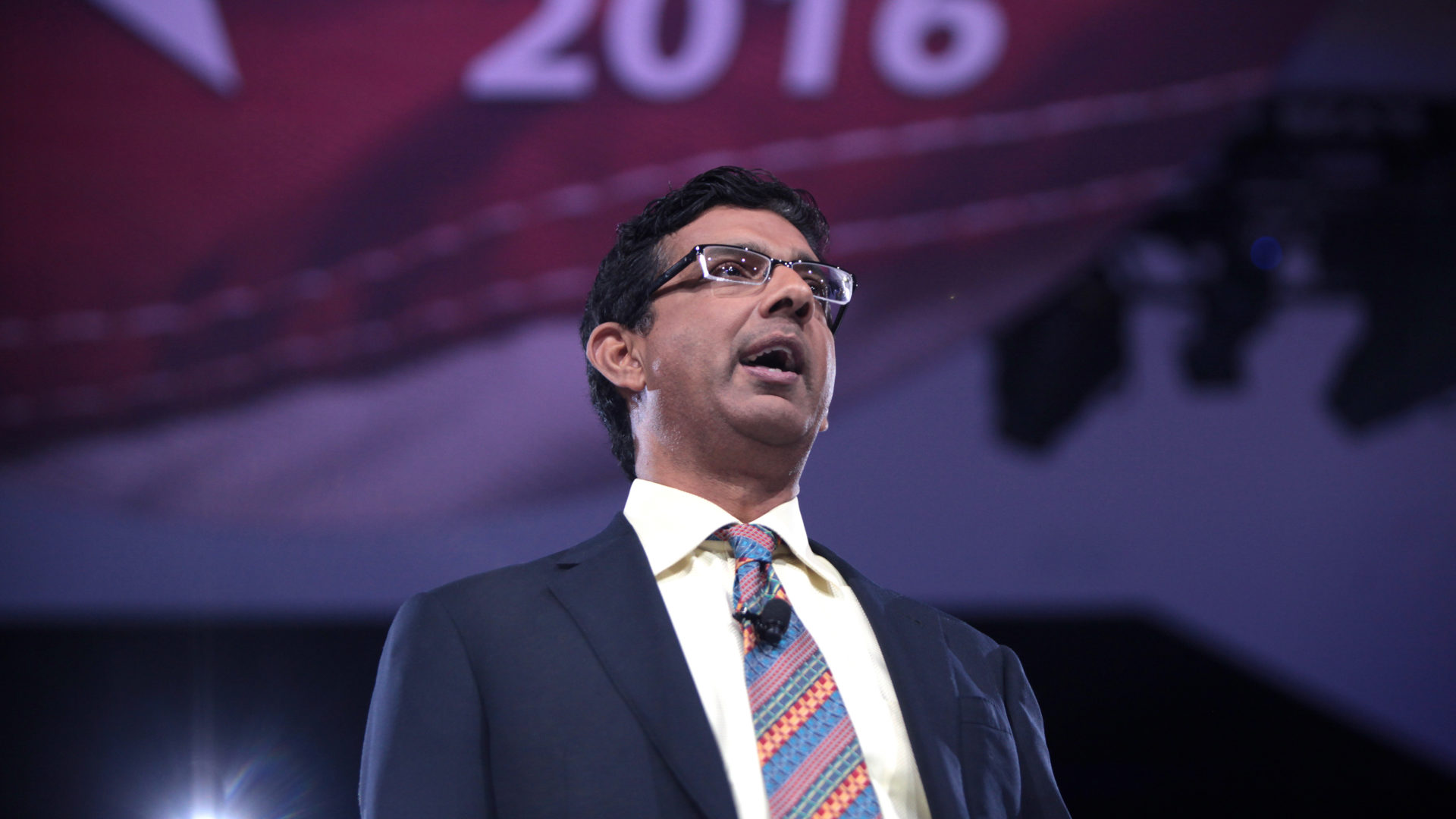
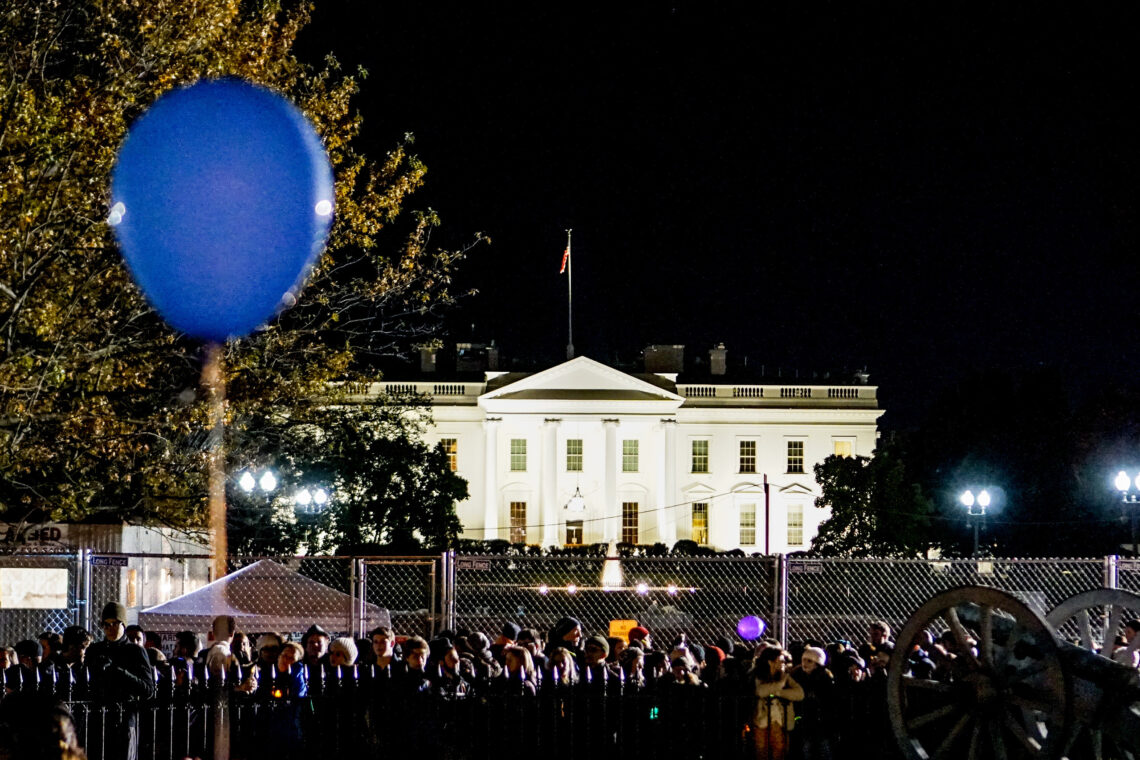
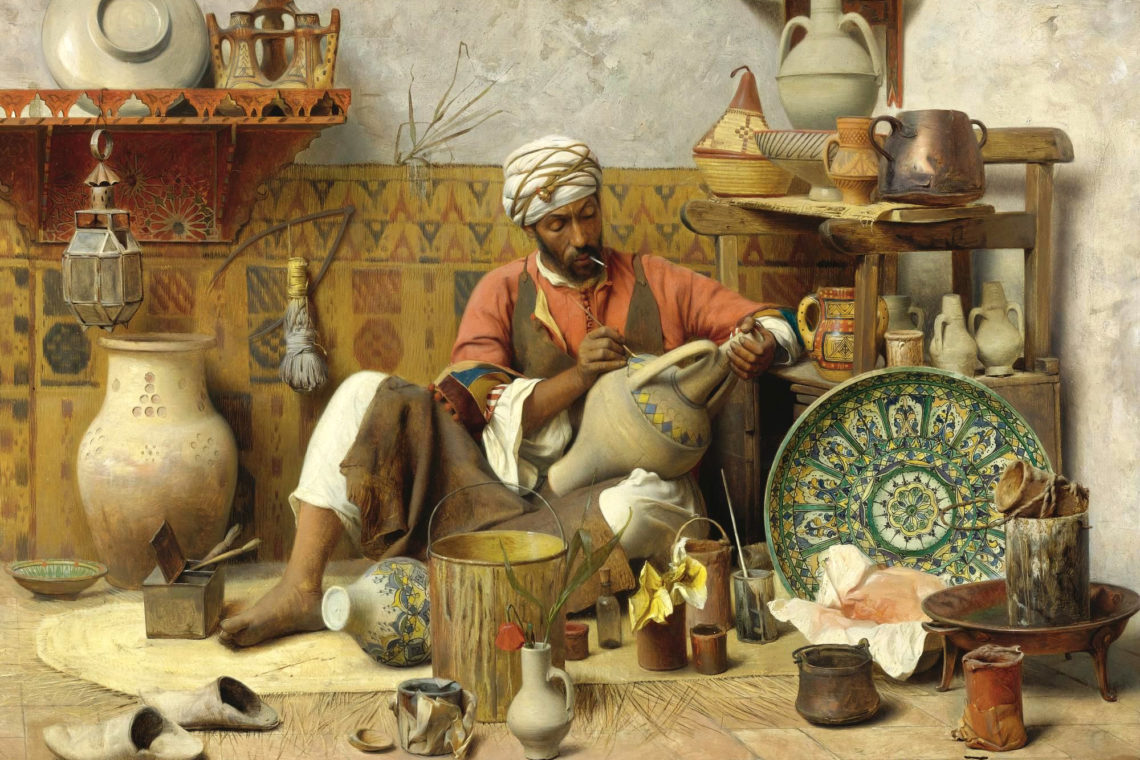
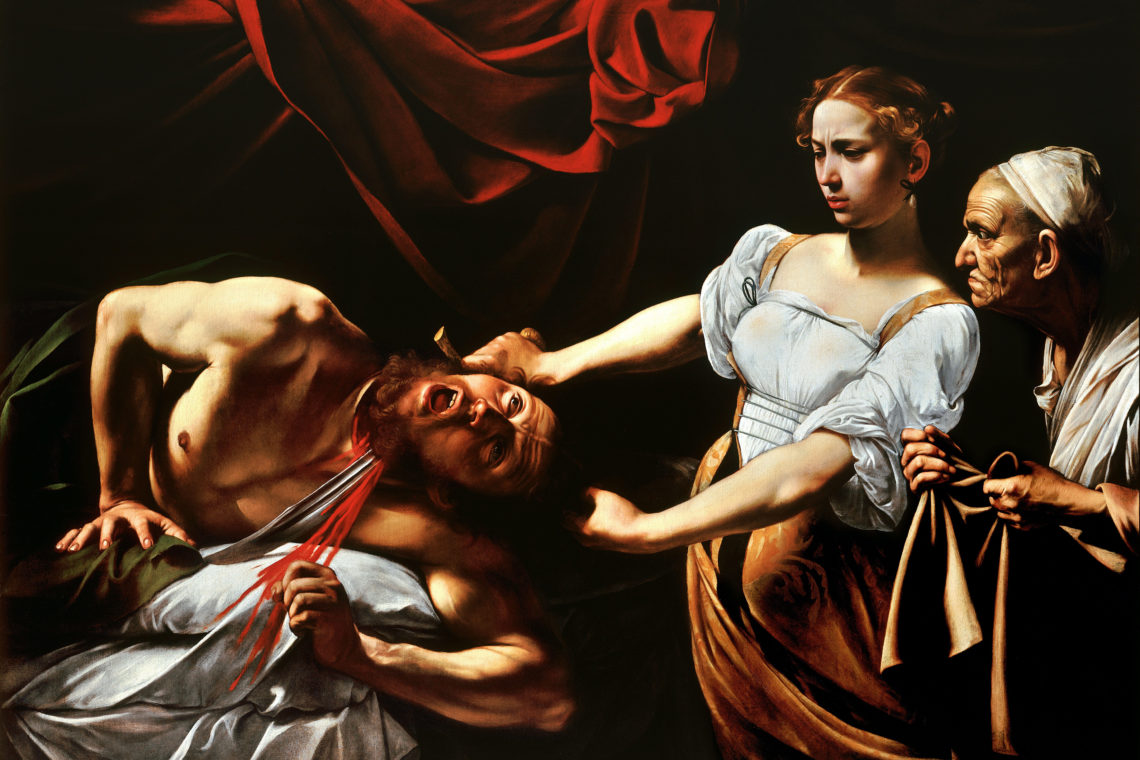
Comments are moderated by the editor and may not appear on this discussion until they have been reviewed and deemed appropriate for posting. All information collected is handled in a manner consistent with our privacy policy.